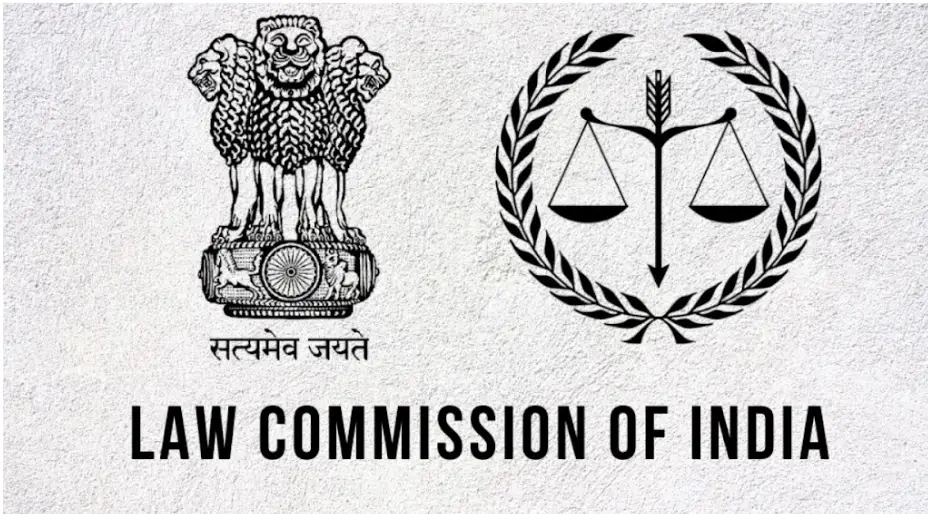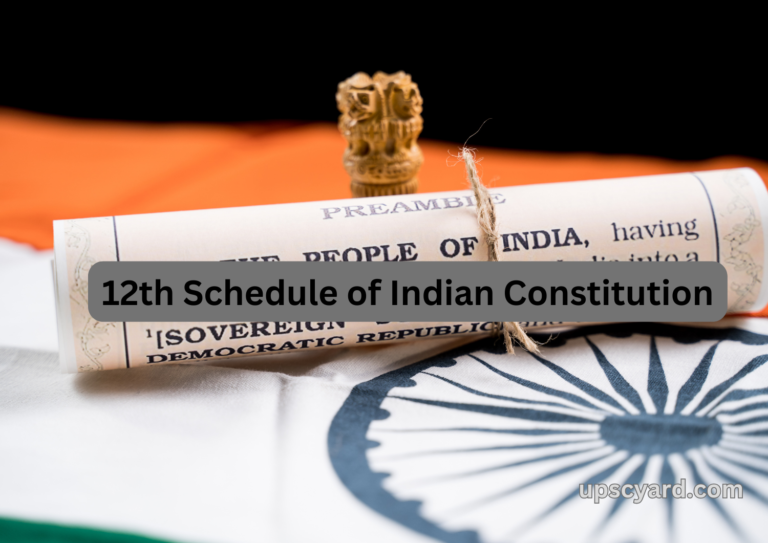Unveiling the Essence of the Law Commission of India UPSC: An In-Depth Exploration
In the multifaceted realm of legal dynamics in India, the Law Commission stands as a bastion of legal evolution and reform. This comprehensive article aims to delve into the intricacies of the Law Commission of India, offering a profound analysis of its historical roots, constitutional mandate, pivotal functions, and role in shaping the legal landscape.

Introduction
The Law Commission, an executive body formed by a Government of India order, does not hold constitutional or statutory status. Instead, it operates as a temporary entity with a key objective of spearheading legal reforms.
Created to serve a specific duration, the Commission functions in an advisory capacity to the Ministry of Law and Justice. Its composition is predominantly comprised of legal experts who contribute their expertise to the pursuit of legal advancements in the country.
History and Establishment
- Genesis of the Law Commission:
The origins of the Law Commission trace back to a seminal moment in Indian legal history when, on 1st August 1955, the Government of India, through an official order, breathed life into this institution. The primary impetus behind its formation was the imperative need for a specialized body dedicated to scrutinizing existing laws and recommending reforms.
Law Commissions in India trace their roots back to the pre-independence era. The inaugural Law Commission was established in 1834 following the enactment of the Charter Act, 1833, with TB Macaulay at its helm.
The recommendations put forth by this pioneering commission led to the codification of both the penal code and the Criminal Procedure Code. Prior to gaining independence, the British government formed three additional law commissions, each playing a significant role in enriching the country’s statute books.
Post-independence, the legacy continued with the formation of the first Law Commission in 1955. This marked a deliberate effort to uphold the tradition of ushering in legal reforms through the institutional framework of law commissions. The inaugural post-independence commission diligently submitted 14 reports to the government, contributing significantly to the ongoing evolution of the legal landscape.
Constitutional Mandate and Functions
- Constitutional Anchors:
At the core of the Law Commission’s existence lies the constitutional backing provided by Article 280 of the Constitution of India. This constitutional provision empowers the President to constitute such a body, emphasizing its intrinsic connection with the highest law of the land. - Multifaceted Functions:
The multifaceted functions assigned to the Law Commission are integral to its purpose. These encompass the critical examination and review of existing laws, the identification of obsolete statutes, and the formulation of recommendations for comprehensive legal reforms. Additionally, the Commission is vested with the responsibility of suggesting measures for the simplification and codification of laws, thereby streamlining the legal framework.
The Law Commission goes beyond its primary role by engaging in various essential functions:
- Reviewing and Repealing Obsolete Laws:
The Commission actively identifies laws that have become irrelevant and recommends the repeal of outdated and unnecessary enactments, ensuring a more streamlined legal framework. - Law and Poverty Examination:
With a focus on socio-economic legislations, the Commission scrutinizes laws affecting the economically disadvantaged. Post-audits are conducted to assess the impact of these laws on poverty, contributing to more equitable legal considerations. - Enacting Legislation for Directive Principles:
In line with the objectives outlined in the Preamble of the Constitution and to implement Directive Principles, the Commission suggests the enactment of new legislation as deemed necessary, contributing to the realization of constitutional ideals. - Judicial Administration Involvement:
The Commission provides its insights on matters related to law and judicial administration, referred to it by the Government through the Ministry of Law and Justice (Department of Legal Affairs), reflecting its advisory role in legal matters. - Research Support:
Responding to requests from foreign countries, the Commission, through the Ministry of Law & Justice (Department of Legal Affairs), offers research assistance, showcasing its commitment to the global legal community. - Promoting Gender Equality:
The Commission takes proactive steps by examining existing laws to promote gender equality, suggesting amendments to create a legal framework that reflects and supports equality between genders. - Impact of Globalization Analysis:
Recognizing the broader implications of globalization, the Commission examines its impact on crucial aspects like food security and unemployment. Recommendations are made to safeguard the interests of marginalized communities in the face of global changes. - Periodic Reporting to the Government:
The Commission regularly compiles and submits reports to the Central Government, encompassing issues, studies, and research undertaken. These reports include recommendations for effective measures to be adopted by the Union or any State. - Adapting to Assigned Functions:
Beyond its core responsibilities, the Commission performs any additional functions assigned by the Central Government, showcasing its adaptability and responsiveness to evolving legal needs.
Before finalizing its recommendations, the Commission follows a consultative process involving discussions with nodal Ministries/Departments and other stakeholders deemed necessary for a comprehensive understanding of the issues at hand. This collaborative approach ensures that the recommendations are well-informed and consider a diverse range of perspectives.
Significant Reports and Recommendations
- Landmark Reports:
The Law Commission has etched its mark on legal history through the creation of numerous landmark reports. Notable among these is the 42nd Report, a meticulous exploration of anti-dowry laws that proposed amendments for a more equitable legal framework. - Criminal Law Reforms:
In the realm of criminal law, the Law Commission’s contributions are paradigm-shifting. The 262nd Report, for instance, delves into amendments to the Indian Penal Code, addressing contemporary issues such as hate crimes and cybercrimes, showcasing the Commission’s adaptability to evolving legal challenges.
The Law Commission of India has diligently crafted 277 reports addressing a myriad of issues, with some recent highlights including:
- Report No. 277 – Wrongful Prosecution (Miscarriage of Justice): Legal Remedies
- Report No. 276 – Legal Framework: Gambling and Sports Betting in India, Including Cricket
- Report No. 275 – Legal Framework: BCCI in Relation to the Right to Information Act of 2005
- Report No. 274 – Examination of the 1971 Contempt of Courts Act
- Report No. 273 – Application of the United Nations Convention Against Torture
- Report No. 272 – Evaluation of Tribunal Statutory Frameworks in India
- Report No. 271 – Human DNA Profiling
- Report No. 270 – Marriage Registration Compulsory
It’s noteworthy that while the Law Commission’s recommendations hold significant weight and expertise, they are not legally binding on the government. Nonetheless, these reports contribute immensely to the ongoing discourse on legal matters in the country.
Challenges and Criticisms
- Delayed Implementation Woes:
Despite its invaluable contributions, the Law Commission often grapples with the challenge of delayed implementation of its recommendations. This delay not only hampers the timely evolution of the legal system but also raises questions about the efficacy of the Commission’s role in influencing legislative changes. - Power Dynamics:
A critical criticism revolves around the limited executive power vested in the Law Commission. While its recommendations may be persuasive, the actual implementation rests on the political will of the government, often leading to a gap between suggestion and execution.
Current Initiatives and Future Prospects
- Digital Transformation Endeavors:
Embracing the digital age, the Law Commission is actively engaged in initiatives for digital transformation. This includes the digitization of legal documents, a move that not only enhances accessibility but also aligns with contemporary technological trends. - International Collaborations:
Recognizing the global interconnectedness of legal frameworks, the Law Commission is exploring avenues for international collaboration. Such collaborations are pivotal for enriching the Commission’s understanding of global legal practices, fostering a broader perspective on contemporary legal challenges.
Conclusion
In the grand tapestry of India’s legal landscape, the Law Commission stands as a linchpin, weaving together historical underpinnings, constitutional mandates, and contemporary relevance.
The Law Commission of India, though no longer active, was an executive body established through a Government of India ordinance. Comprising legal experts and headed by a retired judge, its primary function was to study and offer advice to the Government of India on legal reforms. In the midst of globalization and an ever-changing society, the Commission analyzed laws with a contemporary lens. It not only proposed effective measures to promptly address citizens’ grievances but also took necessary steps to assist marginalized communities. Especially in recent times, its role has gained increased significance in navigating the complexities of our evolving society.




